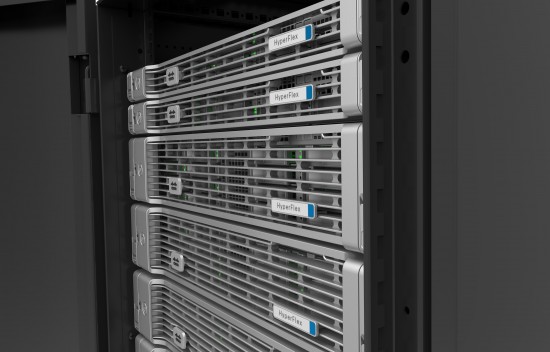Today I am pleased to introduce a new Cisco product family, and the next generation of hyperconverged infrastructure: Cisco HyperFlex Systems. Cisco HyperFlex represents true hyperconvergence, combining innovative software defined storage and data services software with Cisco UCS, the proven system that unifies servers and networking like no other.
With Cisco HyperFlex, we’re delivering the capabilities customers tell us they’ve been waiting for in a hyperconverged solution. By extending our strategy of software defined, policy driven infrastructure to hyperconvergence, Cisco will accelerate mainstream adoption of this valuable technology and provide customers a future-ready platform for evolving applications
When you look back on the last 10 years, it’s easy to make the case that Cisco has enabled much of the data center infrastructure convergence we’ve seen so far– with Nexus, UCS and ACI. During the industry transition to virtualization and cloud, Cisco saw the need to converge the network with computing. We then partnered with strategic storage vendors to deliver Cisco Integrated Infrastructure. Customers responded and now Cisco Unified Computing continues to redefine data center capabilities for over 50,000 customers across the globe.
Video view of Cisco HyperFlex
Hyperconvergence: The story so far
Today our industry is in transition once more, to more distributed applications, microservices architectures, and shifting IT models. Hyperconverged infrastructure was introduced to leverage the economic benefits of software-defined storage (software that federates storage across clusters of x86 servers) and deliver a simplified solution for mainstream workloads. First movers in this space focused on getting to market quickly and delivering simplicity. To do that they had to made some tradeoffs that have limited the potential of hyperconverged infrastructure:
- Easy, building block scaling often came at the expense of inefficient, lock-step ratios of compute and storage
- SDS stacks built on conventional, write-in-place file systems, show limitations in performance and data optimization
- Rather than integrating with existing tools, new silos of management and policies were introduced
- Finally, and perhaps most important in the context of distributed, clustered systems: networking was never fully integrated with compute in these products
Understanding the full-credit answer
As I’ve spoken with customers and partners around the world they’ve told me they want:
- Operational simplicity AND integration with existing tools and processes. No additional islands of infrastructure or management.
- Easy scaling AND the flexibility to tailor compute and storage ratios in an efficient way
- A platform that can support more of their applications today AND has the capability to support tomorrow’s microservices application architectures and containers.
We approached hyperconvergence from this lens, and developed an agile, efficient and flexible system to meet these requirements.
Cisco HyperFlex Systems
Through our strategic relationship with Springpath, we’ve integrated innovative storage and data services software with Cisco UCS to create an architecture with substantial differentiation:
- Independent scaling of compute and storage capacity allows right resources to be added incrementally in the right ratios.
- Dynamic data distribution provides high availability, superior performance and better efficiency.
- Continuous data optimization, delivered via always-on inline deduplication and inline compression that is layered on a log structured file system, minimizes storage needs by up to 80% without compromising on performance.
- Integrated Management and Data Services allow HyperFlex systems to deliver native data services like granular Snapshots and Clones and to be seamlessly added to the robust UCS management ecosystem to simplify management.
Please join us for a webcast on Thursday, March 10th to hear more about the re-imagined data center.
You can also learn more at cisco.com/go/hyperflex or follow the conversation on Twitter with #CiscoHX.
Tags:
